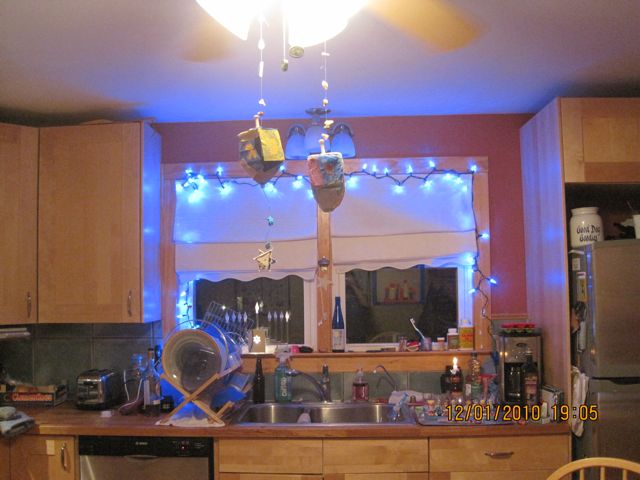It’s November. Christmas is almost a month away. But even before the Halloween clearance candy was actually cleared, tinsel and plastic Santas were popping up at the ends of the supermarket aisles. “Why are they playing Jingle Bells already?” asked Zoe, in a not so patient voice, as we gathered bags of cranberries for our Thanksgiving meal.
And thus began this year’s round of what some families refer to as the “December Dilemma.” The expression means different things to different families, but it almost always refers to a struggle with mainstream culture’s enormous emphasis on Christmas, which, as we all know, is not exactly a “this is some people’s sacred and meaningful holiday” kind of emphasis.
For Jewish families, the December Dilemma might mean figuring out how to explain to your children why everyone is wishing them a Merry Xmas or asking them what they want Santa to bring. Or it might mean helping them decide whether or not to sing along with the Christmas carols at their “winter assembly.” (I recall mouthing the objectionable words when I was a child.) It often means knowing how to respond to their feelings of exclusion or even jealousy.
For interfaith families, or families where one parent converted from Christianity, the December Dilemma can be thornier and more emotionally complex. It might mean deciding where to spend December 25th; or explaining to non Jewish in laws why you don’t have a tree, or explaining to Jewish in laws why you do, and steeling one’s self against their judgments either way.
Christmas, and all the symbols associated with Chirstmas, can be extraordinarily emotional for both Jews and non-Jews, but in profoundly different ways, and more remarkably, in ways that are often terrifically hard to explain to one another. I recently spoke with Anita Diamant, author of The Red Tent, who is coming to our little town of Northampton this weekend for an afternoon entitled “Chanukah and Christmas – A Parenting/Grandparenting Conversation.” She crystallized this issue with great insight. “I think in many cases Jewish partners and families see the Christmas tree as a cross, and it’s simply not that for an awful lot of non-Jews, especially those who grew up in secular homes and only celebrated Christmas. It was about food and family gathering.” In other words (to be clear: mine, not hers) when you say “Merry Christmas” to me, I might hear “Won’t you accept Jesus as Lord?”, when all you really meant was, “I hope you find a way to add light to your life during this dark time of year.” I’m not suggesting it’s right or wrong, but it is an awfully helpful perspective.
I’m of the opinion that December isn’t so much a dilemma as an opportunity. This time of year offers a chance for our kids to notice that our family is, in Diamant’s words, “slightly counter cultural” – and not just because we don’t have cable or smart phones. Being Jewish seems so normal to my children, especially as students at a Jewish day school, that they don’t always realize that we’re one of the only families on the block lighting Shabbat candles and eschewing bacon. Come Christmas, they notice and they ask. And we talk about it.
It’s also the one time of year that we really share traditions with our non-Jewish relatives. The girls help Grandma and Pip decorate their tree down in Connecticut, and Grandma and Pip come up for an evening of latkes and candle lighting. The girls get to teach a little about our holiday, and learn a little more about theirs, discovering the many things that are different, but also, as Diamant explained “that there are many similarities. Hanukkah and Christmas share a universal insight, lighting candles against the darkness and magical thinking.”
And if you’re wondering whether all this exposure leads to any confusion for my girls – well, check out this piece I wrote a few years ago about the time I caught them “playing Christians.”
How will you make the most of the “December opportunity?” Please share your comments – I always learn so much from your ideas and suggestions.


